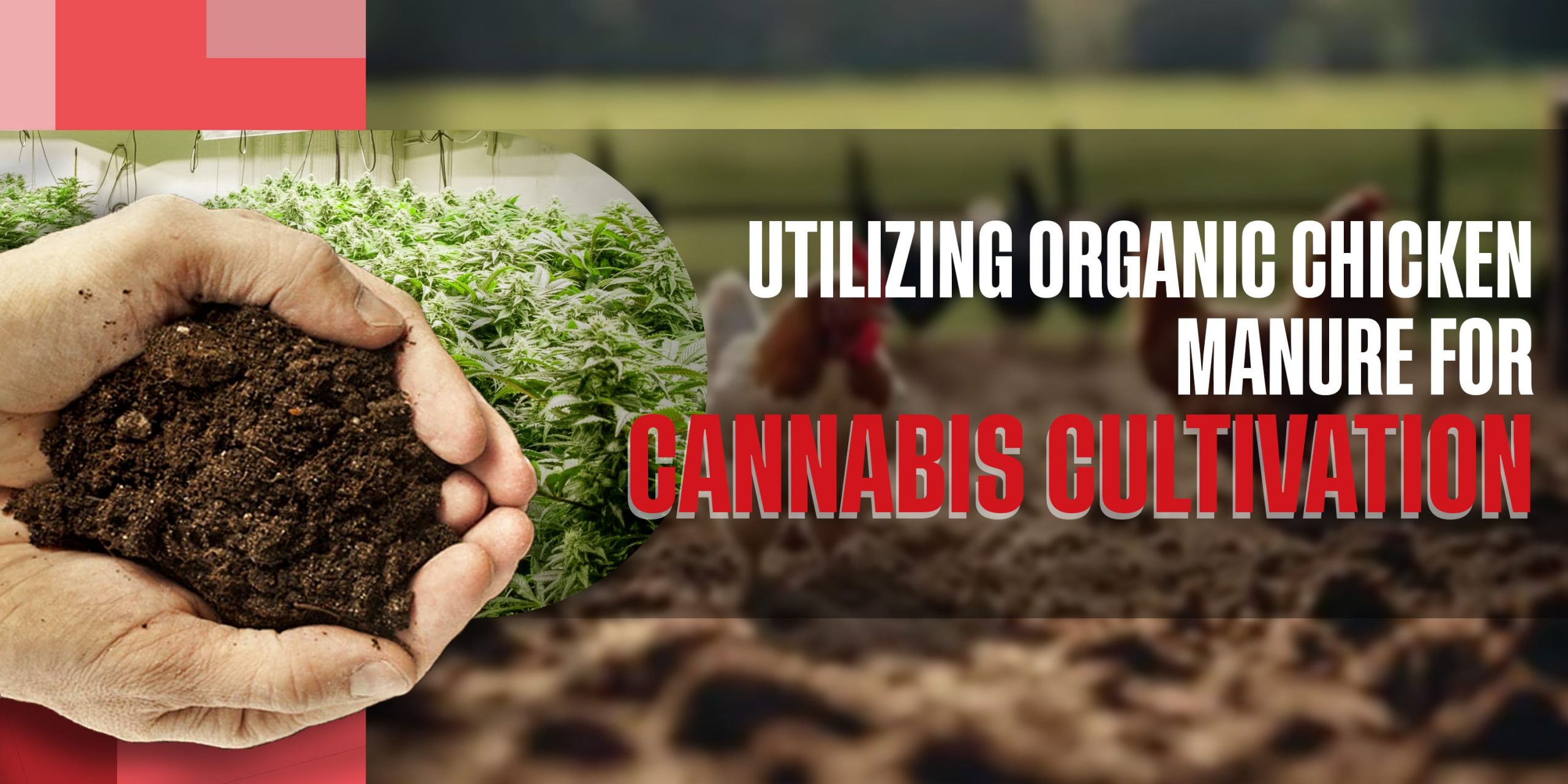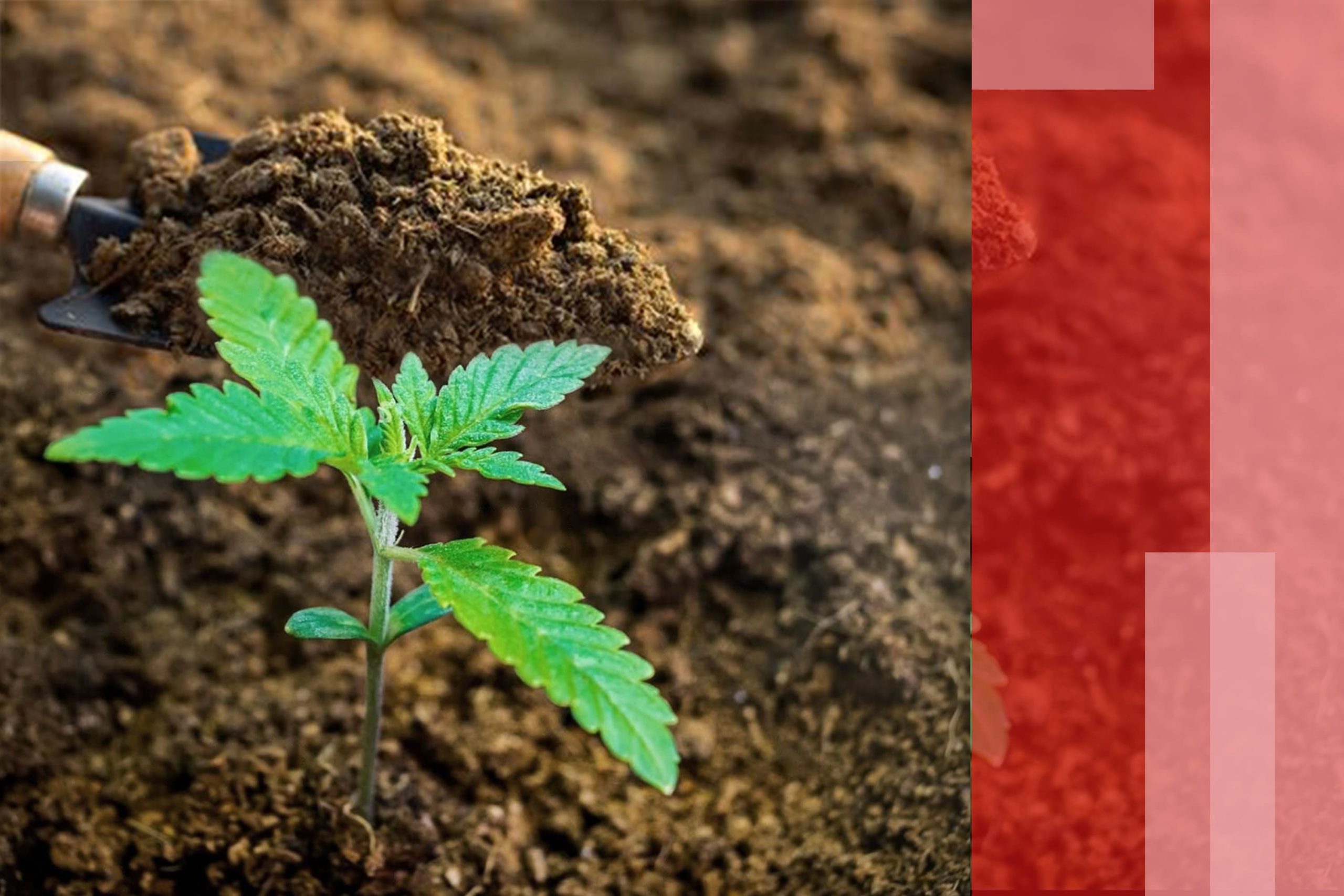Table of Contents
ToggleGrowing cannabis successfully requires a well-rounded strategy, and one of the most effective techniques involves the use of organic manure. Incorporating natural fertilizers like chicken manure into cannabis cultivation can significantly enhance soil quality, improve plant health, and ultimately lead to more robust yields. This comprehensive guide explores the benefits of various types of manure, how to use them effectively, and best practices for optimizing cannabis growth.
The Benefits of Using Organic Manure in Cannabis Cultivation
Organic manure serves as a powerful tool in cannabis cultivation. By integrating manure into your gardening practices, you can enhance soil fertility, enrich plant nutrition, and boost overall plant health. Unlike synthetic fertilizers, organic manure releases nutrients slowly over time, ensuring a consistent supply of essential elements to cannabis plants. Additionally, using manure promotes sustainability and reduces dependency on chemical inputs, making it an eco-friendly choice for growers.
How Organic Manure Enhances Soil Health
Improving Soil Structure
Organic manure significantly improves soil structure by adding organic matter, which increases soil porosity and aeration. This improvement in soil texture creates a conducive environment for root development, enabling cannabis plants to access water and nutrients more efficiently. Whether you are practicing no-dig gardening or traditional tilling, applying manure can act as a protective layer, preventing soil erosion and compaction.
Boosting Water Retention
Manure plays a crucial role in enhancing the soil’s ability to retain water. The organic matter in manure acts like a sponge, holding moisture and making it available to plant roots during dry periods. This improved water retention capacity reduces the frequency of watering, conserves water resources, and helps maintain a stable environment for cannabis plants, minimizing stress and promoting steady growth.
Supporting Microbial Activity
The presence of organic carbon in manure fosters the growth of beneficial microorganisms in the soil. These microbes, including bacteria and fungi, play a vital role in breaking down organic matter, fixing nitrogen, and making nutrients available to plants. By creating a thriving microbial ecosystem, manure supports the natural processes that contribute to soil fertility and plant health, resulting in more vigorous cannabis growth.
mermaid
Essential Nutrients Provided by Organic Manure
Organic manure is a rich source of key nutrients necessary for cannabis growth. It typically contains:
- Nitrogen (N): Essential for leaf and stem growth, nitrogen promotes healthy foliage.
- Phosphorus (P): Crucial for root development, flower formation, and energy transfer.
- Potassium (K): Supports overall plant health, water regulation, and resistance to diseases.
- Trace Elements: Manure provides micronutrients such as calcium, magnesium, and sulfur, which are important for various physiological functions.
The slow release of these nutrients from manure ensures that cannabis plants receive a balanced supply throughout their growth cycle, promoting consistent and healthy development.
Determining the Optimal Amount of Manure for Cannabis
Assessing Soil and Plant Needs
Understanding your garden’s specific needs is the first step in determining the right amount of manure to use. Factors such as soil type, plant density, and nutrient requirements should be considered. A general guideline for new garden beds is to apply 317.5 to 458.6 ounces of manure per 9 square meters. For established gardens, incorporating 0.8 to 1.2 inches of manure or compost annually helps maintain soil fertility.
Precision in Manure Application
Precision is key when applying manure. Over-application can lead to nutrient imbalances, while under-application may not provide sufficient nutrients for optimal growth. It’s crucial to adjust the amount of manure based on soil tests and plant observations. During the winter, a precise layer of manure can prepare the soil for the growing season, ensuring cannabis plants receive the right nutrient levels.
Selecting the Best Manure for Cannabis Cultivation
Chicken Manure: Rich in Nitrogen
Chicken manure is one of the most nutrient-dense options, containing high levels of nitrogen, phosphorus, and potassium. It can be composted to reduce its high nitrogen content, preventing potential plant burn. Chicken manure is especially effective when used as a tea, allowing nutrients to be quickly absorbed by cannabis plants.
Rabbit Manure: Quick Nutrient Release
Rabbit manure is another excellent choice due to its high nutrient content and ease of use. It can be applied directly to the soil without composting, providing a fast-acting nutrient boost. This manure is particularly rich in nitrogen, phosphorus, and potassium, making it ideal for cannabis plants that require immediate nutrient uptake.
Horse and Cow Manure: Balancing Texture and Fertility
Horse and cow manure are valuable for their balanced nutrient profile and ability to improve soil texture. They typically contain moderate levels of nitrogen and potassium, making them suitable for long-term soil fertility enhancement. Hot composting these manures is necessary to eliminate pathogens and weed seeds.
Pig Manure: Considerations and Safety
Pig manure, while historically used, requires careful handling due to potential contamination with pathogens. It’s essential to compost pig manure thoroughly to kill harmful bacteria such as E. coli and salmonella. When properly processed, pig manure can be a beneficial addition to cannabis cultivation.
Sheep and Alpaca Manure: High Nutrient Content
Sheep manure offers higher levels of nitrogen, phosphorus, and potassium compared to cow and horse manure. It also enhances soil microbial activity, promoting a healthier growing environment. Alpaca manure is a quick-release option that can be used without composting, making it a convenient choice for fast fertilization.
Best Practices for Applying Manure to Cannabis
- Even Distribution: Apply manure evenly across the garden area to ensure consistent nutrient availability and prevent localized nutrient overload.
- Quality Sourcing: Source manure from reputable suppliers to avoid contamination with herbicides or pathogens. Conduct thorough checks before purchase.
- Regular Monitoring: Observe plant responses to manure application and adjust the quantity based on growth patterns and soil tests. Monitor for signs of nutrient deficiencies or excesses.
- Adapt to Soil Conditions: Tailor manure application to your soil’s unique characteristics. Regular soil testing can help maintain the optimal balance of nutrients and pH levels, ensuring healthy cannabis growth.
Conclusion
Integrating organic manure into cannabis cultivation offers numerous benefits, from enhancing soil health to providing essential nutrients. By selecting the appropriate type of manure and applying it with precision, growers can create an optimal environment for their cannabis plants to thrive. This sustainable approach not only boosts plant health and yields but also contributes to the long-term fertility of the soil, making it a wise choice for cannabis cultivators committed to quality and sustainability.
FAQs
1. Can I use any type of manure for my cannabis plants?
Not all manures are suitable. It’s best to use well-rotted manure from trusted sources, avoiding those contaminated with herbicides. Popular choices include chicken, rabbit, and alpaca manure.
2. Is manure safe for my cannabis plants, or could it harm them?
Manure is safe when properly composted. Fresh manure may contain high levels of nitrogen and salts, which can burn cannabis plants, especially young seedlings.
3. How often should I apply manure to my cannabis garden?
For initial bed preparation, apply 317.5 to 458.6 ounces per 9 square meters. As the garden matures, consider applying a 0.8 to 1.2-inch layer of manure or compost each winter.
4. Can I mix different types of manure for my cannabis plants?
Yes, mixing different types of manure can provide a balanced nutrient profile. Ensure each manure type is properly composted and consider the specific nutrient needs of your cannabis plants.
5. Should I compost manure before using it in my garden?
Composting manure before use is recommended to reduce the risk of pathogens, minimize nitrogen burn, and eliminate weed seeds. It also helps in breaking down organic matter, making nutrients more available to plants.















